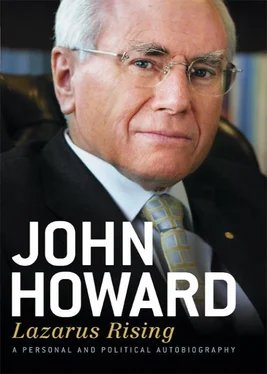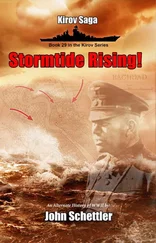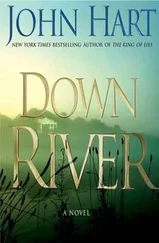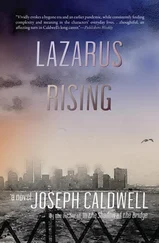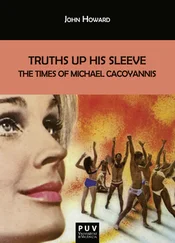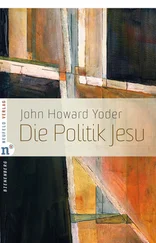The range of people who had come to the civic centre that night bore testament to the pull of a very popular local member. Many were staunch Labor people, proud of what they had brought off, but quite a lot were there because of Reg Coady, and would, in other circumstances, have voted Liberal. Local sporting and community leaders were thick on the ground.
It had been a big mistake going for Drummoyne, but I didn’t think so when I nominated. Even more importantly, it was a blessing that I had lost — I certainly didn’t think that then! I thought that I had let down the party and had blown a golden opportunity to get into parliament at the age of only 28. Moreover, I felt the loss had put paid to my future prospects of preselection, federal or state. I went through the miseries for quite a while. Amongst other things, I had failed all those family and friends who had toiled for me. My mother had upended her life by moving house with me to Drummoyne, and had then worked incredibly hard in the campaign.
That was the jumble of thoughts that consumed me in the wake of the Drummoyne defeat. It became crystal clear later, after I had won preselection for Bennelong, that my loss in Drummoyne had been a huge stroke of good fortune. If I had won Drummoyne it would have only been by the narrowest of margins, the demographics of the area were to move for some years against the Liberals, and with the natural swing of the pendulum I might have had no more than two terms and then lost.
Perfect field evidence for this piece of ex post facto rationalisation was, ironically, provided by my marginal-seat candidate in arms from 1968, Peter Coleman. He succeeded in Fuller where I had failed in Drummoyne. Sir John Cramer, the member for Bennelong, which enveloped Fuller, announced in 1973 that he would not fight the next federal election, and predictably Peter Coleman sought Liberal endorsement for Bennelong. So did I, and I was successful, beating him in the final ballot. So the 1968 state election failure had defeated a 1968 success, for a much greater prize than either had been aiming for in 1968. Apart from again demonstrating the vagaries of politics, it illustrated the difficulty of transferring from state to federal politics, particularly when any degree of marginality is involved.
Drummoyne had one marvellous human interest story which was a reminder of the often conflicting loyalties in politics. For many years Bill Brown had been the superintendent of the Sunday school at Earlwood Methodist Church, which I attended from early childhood. He was a Geordie, having come from Newcastle-on-Tyne as a young man to work with Dorman Long, the company that built the Sydney Harbour Bridge. He was a staunch unionist and Labor supporter. Bill typified the strong link there had always been between the organised labour movement and the Methodist Church in Great Britain. One wouldn’t meet a finer practical Christian. For a number of years I had helped him in running the Sunday school at Earlwood.
Bill and his wife had moved to Drummoyne to live, and I caught up with them when I began attending the Drummoyne Methodist Church. As the election approached, he sought me out to discuss the voting intentions of him and his wife. He said that in other circumstances both of them would have followed their normal loyalty and voted Labor. My being the Liberal candidate had complicated things. Bill told me that, after a lot of soul-searching, they had decided that one of them would vote for me and the other, as usual, vote Labor. I didn’t ask which would be which. I was pleased to know that I would receive at least one vote from the Brown household. I was quite touched by their gesture.
4 REGROUPING AND REBUILDING
I stayed in Drummoyne after my 1968 loss, even though I knew that I would never run for the seat again. It was a question of regrouping, and working out where I went next in politics. Besides, I had more or less agreed to be Malcolm Mackay’s campaign director, in the federal seat of Evans, at the election due at the end of 1969. It was going to be a tough fight for him; Gough Whitlam had given the Labor Party a new edge, and at least some movement back to Labor from the devastating loss of 1966 seemed likely. Evans would need a lot of work to hold. Mackay was a good local member. He listened well to people’s concerns, and both he and his wife, Ruth, had established close links with key organisations.
We had become good friends. The Mackays welcomed me into their home and we swapped thoughts on all political issues. I was in constant touch with Malcolm through the drama-packed days which followed Harold Holt’s drowning on 17 December 1967. In fact I had been at his home in Haberfield when news that Holt was missing came through. It was such an Australian tragedy. The Prime Minister had apparently drowned after plunging into a rough surf at Cheviot Beach near Portsea in Victoria. His body was never found.
John McEwen, Deputy Prime Minister and Leader of the Country Party, announced that the Country Party would not serve in a government led by Holt’s Liberal Party deputy and Treasurer, Bill McMahon. That complicated the imminent leadership stoush within the party. Due to the McEwen veto, McMahon ruled himself out of contention. Mackay started out as a supporter of 64-year-old Paul Hasluck, but over time, I watched him shift to John Gorton, who was energetic in pursuit of his leadership ambitions. This contrasted with Hasluck’s ‘merit unheralded’ approach, which shunned overt convassing for support.
The real clincher for Gorton, however, was his appearances on television in the lead-up to the leadership vote. His relaxed laconic manner, coupled with his crumpled war-hero face, really appealed to viewers. He was new. Most Australians had not previously noticed him. On first blush they liked him a lot; he gave direct answers and clearly wanted the job. He was the first person to win the leadership of a major political party in Australia largely through the force of his television appearances.
I remained on the party’s state executive and, therefore, heavily involved in the party’s organisational affairs. This was also the time when I went into partnership with Peter Truman, and the following year we were joined by John Nelson to form the firm Truman, Nelson and Howard. Although my passion for politics never receded, this was a period when I derived considerable satisfaction from the practice of law. The firm had offices in Pitt Street, Sydney.
There was nothing quite like having a direct stake in the business. It was a mixed practice, and I handled any variety of work. I had carriage of any litigation which came the firm’s way, including divorce work. I didn’t like doing divorce work very much, but it was part of the practice and someone had to look after it. Time and time again I was reminded of how irrational people would become when a formerly close relationship had broken down altogether. Levels of intelligence or wealth made no difference to the degrees of irrationality.
I drew much professional encouragement from a personal injury case I ran on behalf of a man called Bozanic. He was an immigrant from the old Yugoslavia, and had been injured whilst working on the Snowy Mountains Hydro-Electric Scheme. The injuries he sustained resulted from his being thrown from a loader. Bozanic had tried a number of solicitors who, after a while, told him he did not have a strong enough case. I felt sorry for him and took his case on, essentially on a speculative basis.
It took a long time for a hearing date to be fixed, and at times I wondered about the wisdom of having taken on the matter in the first place. The poor man had been referred to me by a friend in the Liberal Party who felt that because of his age and poor language skills Bozanic had been pushed around. The date of the court hearing finally arrived; the case went extremely well, and Bozanic was awarded $40,000 plus costs. In 1969, given the nature of his injuries, this was a terrific outcome. To me this was a good example of how the law could be used to help someone who really needed assistance.
Читать дальше
